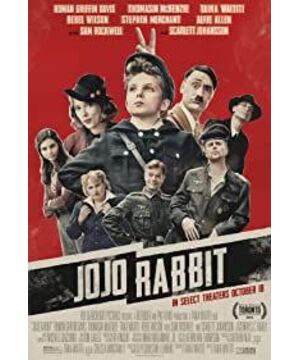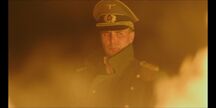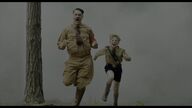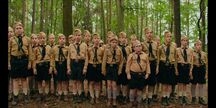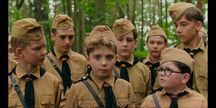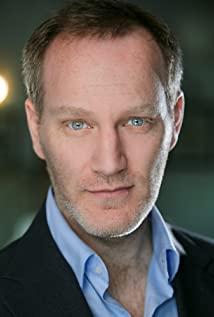From the perspective of a child, we cut into the cruel and cold-blooded era, but unlike the previous World War II movies, the whole film does not intend to discuss the suffering of the Jews, but to explore the impact of aggressive ideology such as aggression and anti-Semitism on the Germans. in a playful way.
This film is completely in a bright, bright and colorful world. This natural and sufficient lighting makes Qiaoqiao in a safe and free comfort zone, and in the real world outside this comfort zone, Jojo couldn't feel it, which means the deep influence of Nazi ideology on Jojo. His room was covered with Hitler's head and swastika. Although he was ten years old, he talked a lot about politics and partisan issues, and even his imaginary partner was Hitler. These all show how deeply Nazi ideology has eroded ordinary people, even a ten-year-old.
In the section where the Youth League taught Qiaoqiao to hunt and kill rabbits, the older child asked him to kill a rabbit, but Qiaoqiao refused. The older child further persecuted and humiliated him, and the surrounding children also shouted, "Kill it, kill it. It", which made me feel a kind of unaware horror. Under the influence of that powerful ideology, everyone must be in the group, and aliens are not allowed, otherwise it means betrayal. This black-and-white value seriously destroys the values of these children, but fortunately Jojo withstood the pressure and didn't really kill the rabbit. This rabbit is actually the beginning of Jojo's awakening, and he begins to realize the abnormality of this environment. At the end of the film, there is a rabbit in the snow, which means that Jojo has completed her awakening.
The two most important women for Jojo - mom and "girlfriend". Mom secretly joined an anti-Nazi organization to carry out anti-Nazism activities. She and Jojo are two extremes. What makes this puzzling is why close relatives are so ideologically divided. Even so, her mother did not blindly instill her anti-Nazi theory into Jojo, just as she tolerated Jojo's many shortcomings, such as not being able to tie her shoelaces even if she was ten years old, and she tolerated Jojo's beliefs. She told Jojo that she hoped that the war would end soon and loving her motherland was not in conflict. She tied Jojo's shoelaces and tripped him to remind him that guns and war were not good. She hoped to subtly change Jojo through her own words and deeds. misconceptions. She guarded Jojo's innocence very well. "Girlfriend" is a Jew who was rescued by her mother and hid in the attic of her home. She was discovered by Jojo for the first time but was regarded as a ghost. In many contacts, Jojo learned through her that the Jews are not monsters with horns and mind-reading skills. They are ordinary people like the Aryans. She changed Jojo's ideological prejudice, and he even fell in love with her. They all helped Jojo's growth a lot.
The most worthy of speaking in the film is the image in Jojo's fantasy - Hitler. He's not the perverted beast from the history textbooks, he's become a hilarious character. He can be said to have a double role. On the one hand, he helped Jojo overcome the difficulties he encountered and helped him grow. On the other hand, he also instilled Jojo's Nazi ideology, which made Jojo grow into an extreme fascist. As Jojo's ideology changed, Hitler also gradually slipped into extreme Nazism. But in the end Jojo overcame herself and defeated that evil image.
Movies are like fairy tales but not so fairy tales. There is not only the innocence of children, but also the helplessness and pain of the hidden world of adults. In short, another dream ended.
View more about Jojo Rabbit reviews


